
For this week’s “Things That Bring Back Memories” post, I am going to pick something in the topic of “TELEVISION” and go with “M*A*S*H“. This television show about a Mobile Ambulance Surgical Hospital, started in 1972 and was over in 1983. It’s one that I used to watch with my Dad, and he would sometimes tell a story about when he was in Vietnam, and they had to be in places like they showed (but in real life). This show had some really funny situations, and still to this day – is remembered by many!
This television show also has one of those theme songs, that I think should be on a “Name That Tune” show. How many of us know what it is just by the first 2 or 3 notes? Amazing how music and television can flow through the years and still be fresh!
For those of you, who are either too young, or just don’t remember it, here’s a video of the “M*A*S*H” intro:
M*A*S*H was one that had stories for every stage of life, appealed to almost every person who watched it, and still to this day, seems to be one you can view again and not feel that it’s out of date. I mean, it is about a past time in history, but the stories that are told, and the circumstances that the characters go through, are still ones that can teach so many a thing about life!
So, did you ever watch this show when you were younger? or have you seen it on TV later in life? Let me know what you thought of it, and if you have any memories of it in your life!
More Info on the Television Series:
M*A*S*H was a true ensemble series. Whilst characters such as Kellye, Igor, Rizzo, Goldman and Ginger are listed where they appear as specific characters central to the plot, they also appeared regularly as non-speaking cast members. This is also true of many of the nurses, 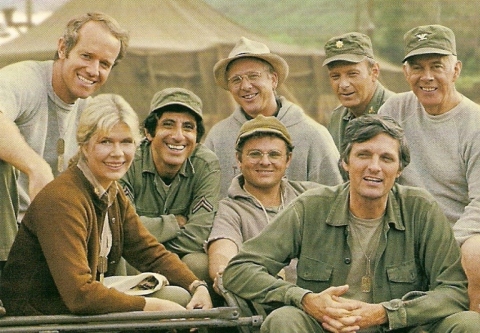 corpsmen, orderlies and drivers listed as guest stars.
corpsmen, orderlies and drivers listed as guest stars.
Based on the 1968 novel by Richard Hooker and the 1970 20th Century-Fox movie of the same name, M*A*S*H aired on CBS from September 17, 1972 to February 26th, 1983 for 251 episodes, and has become one of the most celebrated television series in the history of the medium. During its initial season, however, M*A*S*H was in danger of being canceled due to low ratings. The show reached the top ten program list the following year, and never fell out of the top twenty rated programs during the remainder of its run. The final episode of M*A*S*H was a two and one half hour special that attracted the largest audience to ever view a single television program episode.
In many ways the series set the standard for some of the best programming to appear later. The show used multiple plot lines in a half-hour episodes, usually with at least one story in the comedic vein and another dramatic. M*A*S*H was set in Uijeongbu, South Korea, north of Seoul, during the Korean War. The series focused on the group of doctors and nurses whose job was to heal the wounded  who arrived at this “Mobile Army Surgical Hospital” by helicopter, ambulance or bus. The hospital compound was isolated from the rest of the world. One road ran through the camp; a mountain blocked one perimeter and a minefield the other. Here the wounded were patched up and sent home–or back to the front. Here, too, the loyal audience came to know and respond to an exceptional ensemble cast of characters.
who arrived at this “Mobile Army Surgical Hospital” by helicopter, ambulance or bus. The hospital compound was isolated from the rest of the world. One road ran through the camp; a mountain blocked one perimeter and a minefield the other. Here the wounded were patched up and sent home–or back to the front. Here, too, the loyal audience came to know and respond to an exceptional ensemble cast of characters.
The original cast assumed roles created in Altman’s movie. The protagonists were Dr. Benjamin Franklin “Hawkeye” Pierce (Alan Alda) and Dr. “Trapper” John McIntyre (Wayne Rogers). Pierce and McIntyre were excellent surgeons who preferred to chase female nurses and drink homemade gin to operating and who had little, if any use for military discipline or authority. As a result, they often ran afoul of two other medical officers, staunch military types, Dr. Frank Burns (Larry Linville) and Senior Nurse, Major Margaret “Hot Lips” Houlihan (Loretta Swit). The camp commander, Lt. Col. Henry Blake (McLean Stevenson), was a genial bumbler whose energies were often directed toward preventing Burns and Houlihan from court-martialing Pierce and McIntyre. The camp was actually run by Corporal Walter “Radar” O’Reilly (Gary Burghoff), the company clerk who could spontaneously finish Blake’s unspoken sentences and hear incoming helicopters before they were audible to other human ears. Other regulars were Corporal Max Klinger (Jamie Farr) who, in the early seasons, usually dressed in women’s clothing in an ongoing attempt to secure a medical (mental) discharge, and Father Francis Mulcahy (William Christopher), the kindly camp priest who looked out for an orphanage.
In the course of its eleven years the series experienced many cast changes. McIntyre was “discharged” after the 1974-75 season because of a contract dispute between the producers and Rogers. He was replaced by Dr. B.J. Hunnicutt (Mike Farrell), a clean cut family man quite different from Pierce’s lecherous doctor. Frank Burns was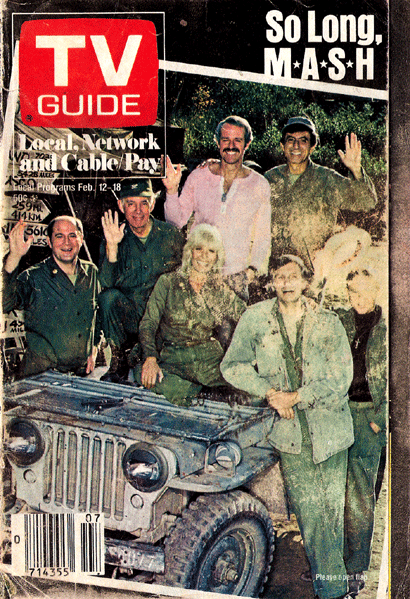 given a psychiatric discharge in the beginning of the 1977-78 season and was replaced by Dr. Charles Emerson Winchester (David Ogden Stiers), a Boston blue blood who disdained the condition of the camp and tent mates Pierce and Hunnicutt. O’Reilly’s departure at the beginning of the 1979-80 season was explained by the death of his fictional uncle, and Klinger took over the company clerk position.
given a psychiatric discharge in the beginning of the 1977-78 season and was replaced by Dr. Charles Emerson Winchester (David Ogden Stiers), a Boston blue blood who disdained the condition of the camp and tent mates Pierce and Hunnicutt. O’Reilly’s departure at the beginning of the 1979-80 season was explained by the death of his fictional uncle, and Klinger took over the company clerk position.
Perhaps the most significant change for the group occurred with the leave-taking of Henry Blake. His exit was written into the series in tragic fashion. As his plane was flying home over the Sea of Japan it was shot down and the character killed. Despite the “realism” of this narrative development, public sentiment toward the event was so negative that the producers promised never to have another character depart the same way. Colonel Sherman Potter (Harry Morgan), a doctor with a regular Army experience in the cavalry, replaced Blake as camp commander and became more both more complex and more involved with the other characters than Blake had been.
Though the series was set in Korea, M*A*S*H, both the movie and the series, was initially developed as a critique of the Vietnam War. As that war dragged toward conclusion, however, the series focused more on characters than situations–a major development for situation comedy. Characters were given room to learn from their mistakes, to adapt and change. Houlihan became less the rigid military nurse and more a friend to both her subordinates and the doctors. Pierce changed from a gin-guzzling skirt chaser to a more “enlightened” male who cares about women and their issues, a reflection of Alda himself. O’Reilly outgrew his youthful innocence, and Klinger gave up his skirts and wedding dresses to assume more authority. This focus on character rather than character type set M*A*S*H apart from other comedies of the day and the style of the show departed from the norm in many other ways as well, both in terms of its style and its mode of production.
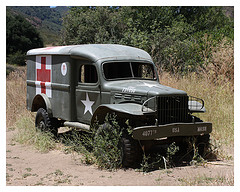 While most other contemporary sitcoms took place indoors and were largely produced on videotape in front of a live audience, M*A*S*H was shot on film on location in Southern California, as well as in a closed studio set (studio #9 at 20th Century Fox). Outdoor shooting at times presented problems. While shooting the final episode, for example, forest fires destroyed the set, causing a delay in filming.
While most other contemporary sitcoms took place indoors and were largely produced on videotape in front of a live audience, M*A*S*H was shot on film on location in Southern California, as well as in a closed studio set (studio #9 at 20th Century Fox). Outdoor shooting at times presented problems. While shooting the final episode, for example, forest fires destroyed the set, causing a delay in filming.
The series also made innovative uses of the laugh track. In early seasons, the laugh track was employed during the entire episode. As the series developed, the laugh track was removed from scenes that occurred in the operating room. In a few episodes, the laugh track was removed entirely, another departure from sitcom conventions. The most striking technical aspect of the series is found in its aggressively cinematic visual style. Instead of relying on straight cuts and short takes episodes often used long shots with people and vehicles moving between the characters and the camera. Tracking shots moved with action, and changed direction when the story was “handed off” from one group of characters to another. These and other camera movements, wedded to complex editing techniques, enabled the series to explore character psychology in powerful ways, and to assert the preeminence of the ensemble over any single individual. In this way M*A*S*H seemed to be asserting the central fact of war, that individual human beings are caught in the tangled mesh of other lives and there must struggle to retain some sense of humanity and compassion. This approach was grounded in Altman’s film style and enabled M*A*S*H to manipulate its multiple story lines and its mixture of comedy and drama with techniques that matched the complex, absurd tragedy of war itself.
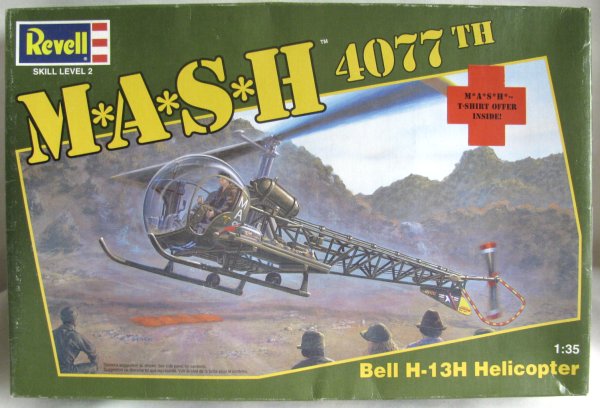 M*A*S*H was one of the most innovative sitcoms of the 1970’s and 1980’s. Its stylistic flair and narrative mix drew critical acclaim, while the solid writing and vitally drawn characters helped the series maintain high ratings. The show also made stars of it performers, none more so than Alda, who went on to a successful career in film. The popularity of M*A*S*H was quite evident in the 1978-79 season. CBS aired new episodes during prime time on Monday and programmed reruns of the series in the daytime and on Thursday late night, giving the show a remarkable seven appearances on a single network in a five day period. The series produced one unsuccessful spin-off, AfterMASH, which aired on CBS from 1983-85. The true popularity of M*A*S*H can still be seen, for the series is one of the most widely syndicated series throughout the world. Despite the historical setting, the characters and issues in this series remain fresh, funny and compelling in ways that continue to stand as excellent television.
M*A*S*H was one of the most innovative sitcoms of the 1970’s and 1980’s. Its stylistic flair and narrative mix drew critical acclaim, while the solid writing and vitally drawn characters helped the series maintain high ratings. The show also made stars of it performers, none more so than Alda, who went on to a successful career in film. The popularity of M*A*S*H was quite evident in the 1978-79 season. CBS aired new episodes during prime time on Monday and programmed reruns of the series in the daytime and on Thursday late night, giving the show a remarkable seven appearances on a single network in a five day period. The series produced one unsuccessful spin-off, AfterMASH, which aired on CBS from 1983-85. The true popularity of M*A*S*H can still be seen, for the series is one of the most widely syndicated series throughout the world. Despite the historical setting, the characters and issues in this series remain fresh, funny and compelling in ways that continue to stand as excellent television.
The final show, that had a record-breaking 125 million viewers, was one that had so many fastened to their television sets, and still to this day, brings tears to my eyes. Here’s a small snippet of what happened in that unforgettable show:
Characters:
Harry Morgan (Colonel Sherman T. Potter) was born April 10, 1915, and is a well-known character actor, who memorably played the Colonel on “M*A*S*H” from 1975 to 1983. Morgan won an Emmy for the role. Morgan also appeared on another iconic 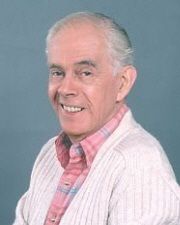 TV series, “Dragnet,” from 1967 to 1970 as Officer Bill Gannon. Morgan, born Harry Bratsberg, was raised in Michigan. He discovered acting while in college, and eventually joined the legendary Group Theater in New York City. Morgan enjoyed a successful career as a Broadway actor and then began working in Hollywood films in the early 1940’s, and appeared in over 100 films over the course of his career. In the 1950’s, Morgan was cast in recurring roles on early television series “December Bride” and “Pete and Gladys.” Following his successful runs on the classic “Dragnet” and M*A*S*H” series, Morgan continued to make guest appearances through the 1990s. Morgan died in 2011, at the age of 96.
TV series, “Dragnet,” from 1967 to 1970 as Officer Bill Gannon. Morgan, born Harry Bratsberg, was raised in Michigan. He discovered acting while in college, and eventually joined the legendary Group Theater in New York City. Morgan enjoyed a successful career as a Broadway actor and then began working in Hollywood films in the early 1940’s, and appeared in over 100 films over the course of his career. In the 1950’s, Morgan was cast in recurring roles on early television series “December Bride” and “Pete and Gladys.” Following his successful runs on the classic “Dragnet” and M*A*S*H” series, Morgan continued to make guest appearances through the 1990s. Morgan died in 2011, at the age of 96.
Alan Alda (Benjamin Franklin “Hawkeye” Pierce) was born on January 28, 1936, began his acting career at the age of 16 in Barnesville, Pennsylvania. While in college at Fordham University, Alda was able to perform on stage in Rome with his father, 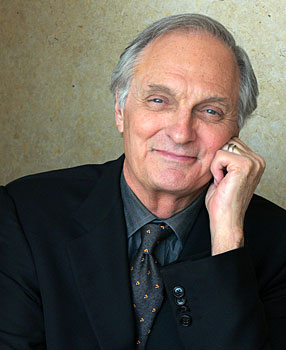 the late Robert Alda, on television. However, his acting career began with “Secret File, U.S.A.” Afterwards, his acting career slowly began to build up, until he finally joined M*A*S*H, of which became his biggest success. Since M*A*S*H, Alda has won well over 25 awards, including 6 Golden Globes, 5 Emmys, and 7 People’s Choice Awards. Not only has Alda starred on television and the silver screen, but he has also appeared on Broadway multiple times. His performance on Broadway’s Fair Game of Lover won him a Theatre World Award, and his acting on The Apple Tree earned him a Toby Nomination. Nearly fifteen years before his success on M*A*S*H, Alda married Arlene Weiss on March 17, 1957. Since then, they have had three daughters: Eve, Elizabeth, and Beatrice. Besides acting, Alda has written two books: Never Have Your Dog Stuffed: And Other Things I’ve Learned and The Last Days of M*A*S*H, of which he co-wrote with his wife, Arlene.
the late Robert Alda, on television. However, his acting career began with “Secret File, U.S.A.” Afterwards, his acting career slowly began to build up, until he finally joined M*A*S*H, of which became his biggest success. Since M*A*S*H, Alda has won well over 25 awards, including 6 Golden Globes, 5 Emmys, and 7 People’s Choice Awards. Not only has Alda starred on television and the silver screen, but he has also appeared on Broadway multiple times. His performance on Broadway’s Fair Game of Lover won him a Theatre World Award, and his acting on The Apple Tree earned him a Toby Nomination. Nearly fifteen years before his success on M*A*S*H, Alda married Arlene Weiss on March 17, 1957. Since then, they have had three daughters: Eve, Elizabeth, and Beatrice. Besides acting, Alda has written two books: Never Have Your Dog Stuffed: And Other Things I’ve Learned and The Last Days of M*A*S*H, of which he co-wrote with his wife, Arlene.
Mike Farrell (B. J. Hunnicutt) was one of a carpenter’s four children, was only two years old when he moved with his family to Los Angeles after his father was offered a lucrative job at a movie studio. Mike caught the acting bug at an early age and was 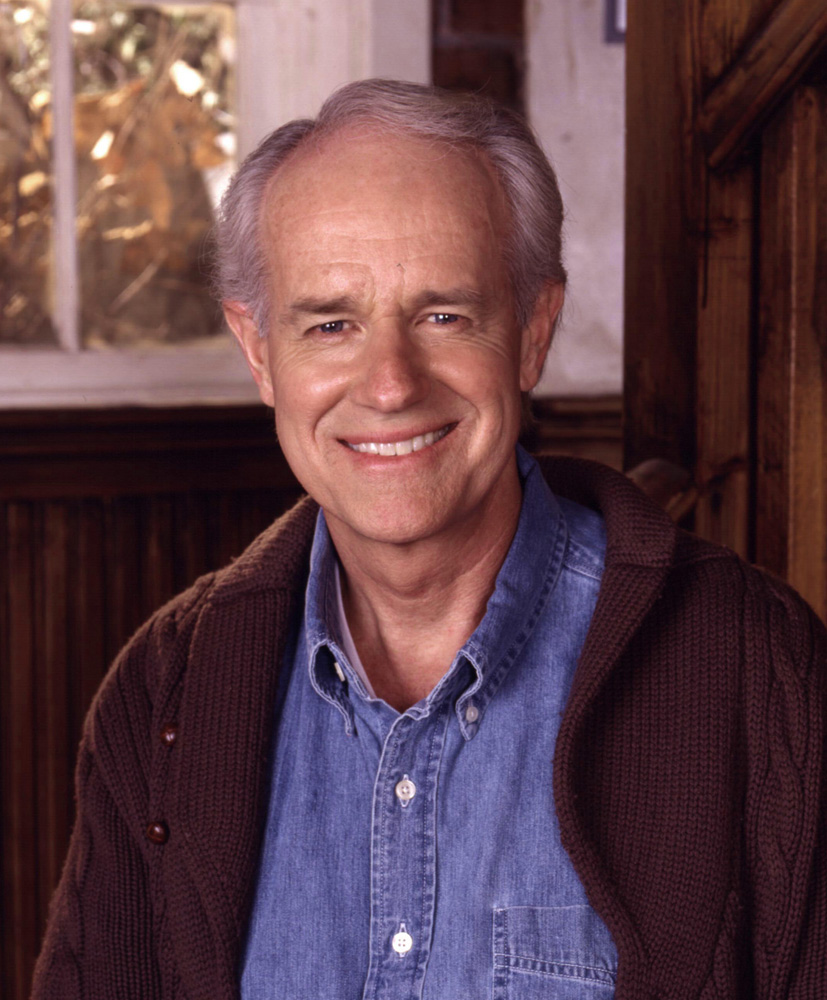 soon acting in high school plays. He briefly put acting aside for a two year stint in the U.S. Marines Corp. Then shortly after his discharge he began taking drama courses at UCLA and the Jeff Corey Workshop. He got his first big break in 1968, when he played architect Scott Banning on the NBC soap Days of Our Lives. However, he is best known for his work on M*A*S*H. Today Mike is active in many political and charitable causes, including CONCERN/America, an international refugee aid and development organization, Human Rights Watch in California, and Death Penalty Focus. He is also a member of the California State Commission on Judicial Performance. He is married to actress Shelly Fabares and has two children by screen-writer Judy Hayden; Michael Joshua, a martial arts teacher, and Erin, who works in the Los Angeles office of Jesse Jackson.
soon acting in high school plays. He briefly put acting aside for a two year stint in the U.S. Marines Corp. Then shortly after his discharge he began taking drama courses at UCLA and the Jeff Corey Workshop. He got his first big break in 1968, when he played architect Scott Banning on the NBC soap Days of Our Lives. However, he is best known for his work on M*A*S*H. Today Mike is active in many political and charitable causes, including CONCERN/America, an international refugee aid and development organization, Human Rights Watch in California, and Death Penalty Focus. He is also a member of the California State Commission on Judicial Performance. He is married to actress Shelly Fabares and has two children by screen-writer Judy Hayden; Michael Joshua, a martial arts teacher, and Erin, who works in the Los Angeles office of Jesse Jackson.
Jamie Farr (Maxwell Q. Klinger) grew up in the town of Toledo, Ohio. His parents, Samuel and Jamelia Farah, had little, with Samuel working as a grocer and Jamelia being a seamstress. After performing in a local acting contest, he decided to pursue an 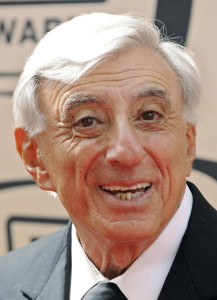 acting career. While attending Woodward High School, Farr starred in several school productions. After high school, Jamie went to Pasadena Playhouse in California. In 1955 he got his break when he was in Blackboard Jungle, following it up with No Time for Sergeants. Shortly after this he joined The Red Skelton’s Show. This part of career ended when he was drafted into the military. While in the military, he served in several different countries, including both Korea and Japan. When he was released from the military, Farr continued to pursue his acting career. Several years after retiring from the army, Farr married Joy Ann Richards on February 16, 1963. Nearly ten years later, Farr’s acting career skyrocketed as he began performing as Corporal Maxwell Klinger on M*A*S*H. Since then, Farr and Joy Ann have had two children, Jonas and Yvonne Farr, and Jamie has even wrote a book on his experiences on M*A*S*H, entitled Just Farr Fun. Farr has now retired from show business, and he now hold’s a woman’s golf tournament once every year. Because of his contributions to Hollywood, Farr received his very own “star” on the Hollywood Walk of Fame in 1985, several years after the season finale of M*A*S*H.
acting career. While attending Woodward High School, Farr starred in several school productions. After high school, Jamie went to Pasadena Playhouse in California. In 1955 he got his break when he was in Blackboard Jungle, following it up with No Time for Sergeants. Shortly after this he joined The Red Skelton’s Show. This part of career ended when he was drafted into the military. While in the military, he served in several different countries, including both Korea and Japan. When he was released from the military, Farr continued to pursue his acting career. Several years after retiring from the army, Farr married Joy Ann Richards on February 16, 1963. Nearly ten years later, Farr’s acting career skyrocketed as he began performing as Corporal Maxwell Klinger on M*A*S*H. Since then, Farr and Joy Ann have had two children, Jonas and Yvonne Farr, and Jamie has even wrote a book on his experiences on M*A*S*H, entitled Just Farr Fun. Farr has now retired from show business, and he now hold’s a woman’s golf tournament once every year. Because of his contributions to Hollywood, Farr received his very own “star” on the Hollywood Walk of Fame in 1985, several years after the season finale of M*A*S*H.
Did You Know?
In Colonel Blake’s office you can see a model of an UH-1 “Huey” helicopter hanging from the ceiling. However, this type first flew in 1956, years after the Korean War came to an end.
Radar is seen reading Marvel Comics that were actually published in the mid-1960’s.
In the closing credits of the episode “Tuttle”, “Captain Tuttle” is listed as playing “Himself”.
The pilot episode opening credits (only seen in original network airings and on DVD and video releases), feature the legend “KOREA, 1950. A hundred years ago…”
Hawkeye can be seen in 1980’s footwear in a couple of episodes.
During one scene in Col. Potter’s office, Col. Potter is spelling someone’s name on the telephone. Hawkeye, standing nearby, responds by chanting “M-O-U-S-E” – part of the “Mickey Mouse Club” show’s theme song. The “Mickey Mouse Club” did not debut on television until October 3, 1955, more than two years after the ceasefire that ended the fighting in Korea.
In the early seasons, Vietnam-like references were often made by characters: Claiming their location was in “Southeast Asia” (Korea is in northeastern Asia) and searching for missing colleagues in “the jungle” (there are no jungle regions in Korea).
Jamie Farr and Alan Alda were the only two cast members to have actually served in the US Army in Korea. Both of them did their tours of duty after the 1953 cease fire.
Radar’s teddy bear, once housed at the Smithsonian, was sold at auction July 29, 2005, for $11,800. (It was originally found on the Fox Ranch, where the series was filmed, and became part of the show.
BJ’s real name is never given. In one episode, Hawkeye goes to extreme lengths to learn what “BJ” stands for, but all official paperwork concerning his friend claims that BJ really is his first name. Toward the end of the episode, BJ explains that his parents’ names are Bea and Jay, and claims that this is the reason for his odd name, but whether this is actually true is never made clear.
Thanks for stopping by today. Please be sure to leave a comment, if this show meant something to you, too. Or to just let me know what you think of the story in this post! TigerStrypes claims no credit for any images used on this post, unless otherwise noted. Images in this post are copyright to their respectful owners. If there is an image appearing on this blog that belongs to you and do not wish for it appear on this site, please email us with a link to said image and it will be promptly removed. Thanks and have a great day!!




WOW! So many emotions. I was little when MASH aired to really appreciate it but my old man loved it.
I wonder if I loved it because my Dad did so much, too. 🙂
This is one of those shows that I always heard about (I unfortunately, didn’t grow up with it) but it seemed like everyone else watched this show. I don’t think I’ve ever seen an episode of it but now I want to. It does sound like it was one of the ones that set standards for later TV. I love reading or hearing about little known facts. Thanks for sharing this!
You’re welcome, Bernadyn. It’s definitely one that certain people will remember themselves being a part of in real life, even. My Dad told me stories about Vietnam and things that happened in the service. Crazy times, but amazing people!
Oh my goodness! It has been years! I remember that my parents used to watch this show when I was little.
Crazy how time flies, huh Daisy?
I LOVED MASH! I was a little girl and would watch it with my Grandfather. So many emotions – laughed, cried, cheered, anger….
I was not old enough to appreciate Mash when it originally came on, but I did watch it in reruns. I thought it was an excellent show.
My husband still watches re runs of Mash. My boys love this show too.
Ha ha, I remember MASH! That’s awesome!
Rebecca @ http://www.Hiphomeschoolingblog.com
My Dad loved MASH, so I grew up watching bits and parts of episodes with him. Lots of fond memories. Radar was my favorite character. 🙂
My dad would watch this all the time when I was growing up. I remember hearing the song as I was falling asleep every evening.
It’s definitely one that is known by many people!! 🙂
I grew up with MASH … didn’t really understand until I got older. But it was a great show.
I agree Tricia, when we were younger it was just a show, but now we know what true war is and really respect the people that this was based on…even in the fiction sense.